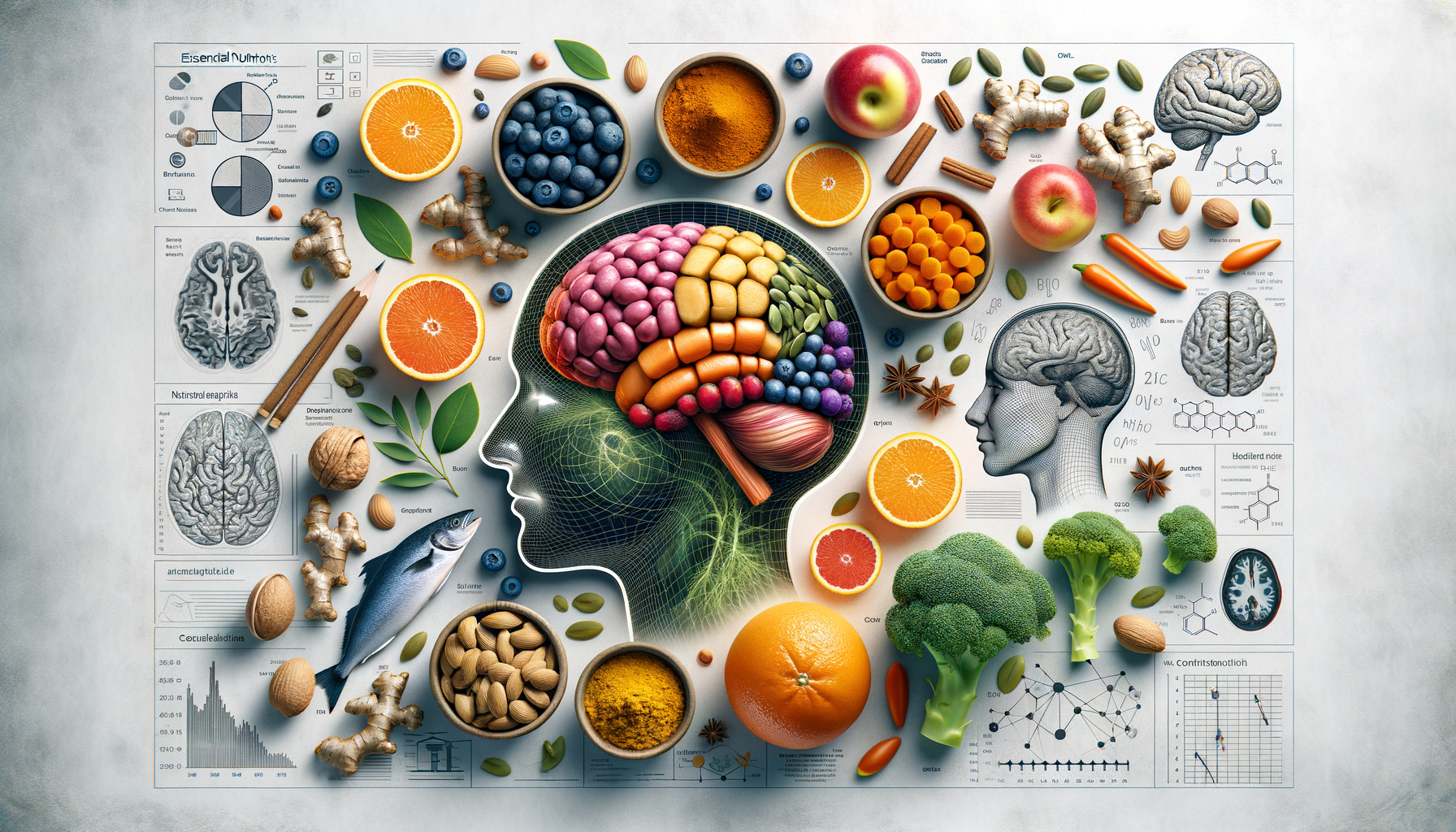Understanding the Role of Nutrition in Cognitive Health
As we delve into the complex world of dementia care, it’s crucial to recognize the significant impact that nutrition can have on cognitive health. The brain, like any other organ, requires specific nutrients to function optimally. These nutrients play a pivotal role in maintaining brain health, potentially slowing the progression of cognitive decline in conditions such as Alzheimer’s and dementia. Research has shown that certain dietary patterns, like the Mediterranean diet, are associated with better cognitive function and a reduced risk of dementia. This is largely due to the diet’s rich content of vegetables, fruits, whole grains, and healthy fats, which provide a plethora of vitamins and minerals essential for brain health.
The importance of nutrition in cognitive health is underscored by the fact that the brain is an energy-intensive organ, consuming about 20% of the body’s energy. This energy demand necessitates a steady supply of glucose, which is derived from carbohydrates, and a range of micronutrients that support various brain functions. A deficiency in these essential nutrients can lead to impaired cognitive function and increase the risk of neurodegenerative diseases. Thus, understanding and implementing a nutrient-rich diet is a critical component of dementia care.
Key Nutrients for Brain Health
Several nutrients have been identified as particularly beneficial for brain health. These include omega-3 fatty acids, antioxidants, B vitamins, and vitamin D. Omega-3 fatty acids, found in fish and flaxseeds, are known for their anti-inflammatory properties and their role in maintaining cell membrane integrity in the brain. Antioxidants, such as vitamins C and E, help to combat oxidative stress, which is a contributing factor to cognitive decline.
B vitamins, including B6, B12, and folate, are essential for maintaining healthy nerve cells and producing neurotransmitters. A deficiency in these vitamins has been linked to increased levels of homocysteine, an amino acid associated with a higher risk of dementia. Vitamin D, often referred to as the “sunshine vitamin,” is also crucial for brain health. It supports the immune system and has been shown to play a role in neuroprotection.
Incorporating these nutrients into the diet can be achieved through a variety of foods. For instance, fatty fish, nuts, seeds, leafy greens, and fortified cereals are excellent sources of these brain-supportive nutrients. By ensuring a balanced intake of these nutrients, individuals can potentially enhance their cognitive function and support overall brain health.
The Impact of Diet on Dementia Progression
Diet plays a significant role in the progression of dementia, with numerous studies highlighting the connection between dietary habits and cognitive decline. A diet high in saturated fats and sugars has been associated with an increased risk of developing dementia. In contrast, diets rich in fruits, vegetables, and healthy fats have been linked to a slower progression of cognitive impairment.
The Mediterranean diet, in particular, has garnered attention for its potential protective effects against dementia. This diet emphasizes the consumption of whole foods, such as fruits, vegetables, whole grains, nuts, and olive oil, while limiting red meat and processed foods. The nutrients found in these foods, including antioxidants and anti-inflammatory compounds, are believed to contribute to the diet’s cognitive benefits.
Moreover, the DASH (Dietary Approaches to Stop Hypertension) diet, which focuses on reducing sodium intake and increasing the consumption of nutrient-rich foods, has also been associated with improved cognitive function. Both the Mediterranean and DASH diets share common elements that are beneficial for brain health, making them viable dietary patterns for those seeking to support cognitive function in dementia care.
Practical Tips for Incorporating Brain-Healthy Nutrients
Incorporating brain-healthy nutrients into one’s diet doesn’t have to be a daunting task. Here are some practical tips to help integrate these essential nutrients into daily meals:
- Include fatty fish, such as salmon or mackerel, in your diet at least twice a week to boost omega-3 fatty acid intake.
- Snack on a handful of nuts and seeds, like walnuts and flaxseeds, which are rich in healthy fats and antioxidants.
- Incorporate a variety of colorful fruits and vegetables into meals to ensure a diverse intake of vitamins and minerals.
- Opt for whole grains, such as quinoa, brown rice, and whole wheat bread, which provide essential B vitamins and fiber.
- Consider fortified foods or supplements if dietary sources of vitamin D are limited, especially during the winter months.
By making small, manageable changes to one’s diet, individuals can significantly enhance their nutrient intake and support cognitive health. It’s important to remember that consistency is key, and even gradual adjustments can lead to long-term benefits for brain function.
Conclusion: Nourishing the Mind for a Healthier Future
In the journey of dementia care, understanding the role of nutrition in cognitive health is paramount. By focusing on a diet rich in essential nutrients, individuals can support brain health and potentially slow the progression of cognitive decline. While no single nutrient or food can prevent dementia, a balanced and varied diet can contribute to overall well-being and quality of life.
For those caring for individuals with dementia, incorporating brain-healthy foods into daily meals can be a meaningful step towards enhancing cognitive function. It’s a reminder that nourishing the mind is as important as nourishing the body, offering a holistic approach to health and wellness.
As research continues to unveil the intricate connections between diet and cognitive health, embracing a nutrient-rich diet remains a practical and impactful strategy in dementia care. By prioritizing nutrition, we pave the way for a healthier future, one meal at a time.




Leave a Reply